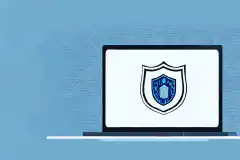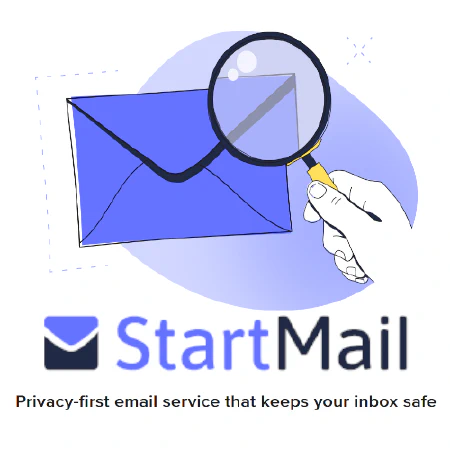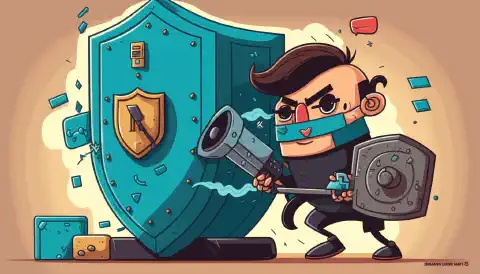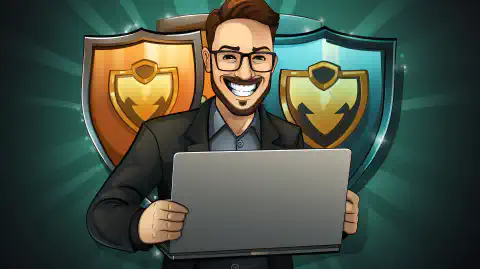10 Essential Internet Safety Tips: Protect Yourself and Your Family Online

Table of Contents
10 Essential Internet Safety Tips for Everyone
The internet has revolutionized the way we communicate, work, and access information. However, with its countless benefits also come various risks that can impact our privacy, security, and finances. As such, taking necessary precautions to protect yourself, your family, and your devices against online threats has become more critical than ever. In this article, we will discuss ten vital internet safety tips that everyone should know and practice.
Understanding the Importance of Internet Safety
Before we delve into the tips, it is crucial to understand why internet safety matters. The internet is a vast network of interconnected devices, and each device connected to it is vulnerable to cyberattacks and data breaches. Online threats include hacking, phishing, identity theft, malware, viruses, and more, all of which can have severe consequences. The need for internet safety is crucial to safeguard your personal information, financial assets, and prevent your devices from being hijacked.
The Risks of Being Online
Every time you go online, there is a risk of falling victim to online scams, data breaches, or other cyber threats. Some of the risks include downloading malicious software unknowingly, giving away your personal details to hackers, engaging with fraudulent websites, and more. Unfortunately, the risks are not limited to adults; children are also vulnerable to online predators and cyberbullying . Therefore, it has become crucial to know how to protect yourself and your loved ones while using online services.
One way to protect yourself from online scams is to be cautious when opening emails from unknown senders. These emails may contain phishing links that can steal your personal information. It is also important to be careful when downloading software from the internet. Some software may contain malware that can damage your device or steal your data.
Another risk of being online is cyberbullying . Cyberbullying can have a severe impact on a person’s mental health and well-being. It is essential to talk to your children about the dangers of cyberbullying and how to report it.
Protecting Your Personal Information
Your personal information is valuable and must be protected. Make it a habit to use strong passwords, enable two-factor authentication , and be careful when sharing your information online. Avoid sharing sensitive data, such as your Social Security number, credit card numbers, and home addresses. Use legitimate websites that have SSL certificates to ensure that your data is encrypted before transmission.
It is also important to keep your software and devices up to date. Software updates often include security patches that can protect your device from cyberattacks. Additionally, be careful when using public Wi-Fi networks. Public Wi-Fi networks are often unsecured, which means that your data can be intercepted by cybercriminals.
In conclusion, internet safety is crucial in today’s digital age. By being aware of the risks and taking necessary precautions, you can protect yourself and your loved ones from cyber threats.
Secure Your Devices and Network
Securing your devices and network means defending your hardware and software from potential cyber threats. Hackers often exploit security loopholes and outdated software/firmware to gain access to your devices. Therefore, it is essential to keep your software updated, use firewalls and VPN services, and monitor the activity on your network.
In today’s digital age, securing your devices and network is more important than ever. With the rise of cybercrime and data breaches, it is crucial to take every precaution necessary to protect your personal information and sensitive data.
Keep Your Software Updated
Always keep your software updated to prevent security vulnerabilities. Set your devices to automatic update to receive the latest security patches and bug fixes. This will ensure that your devices are protected against the latest threats and vulnerabilities.
Outdated software is one of the most common ways that hackers gain access to your devices and data. By keeping your software up-to-date, you can prevent cybercriminals from exploiting security loopholes and vulnerabilities.
Use Strong Passwords and Two-Factor Authentication
Create unique, strong passwords using a mix of upper and lower-case letters, numbers, and symbols. Aim for at least 12 characters. Two-factor authentication adds an extra layer of protection by asking you to provide an additional code received via text or email before accessing your account.
Using weak passwords is one of the easiest ways for hackers to gain access to your accounts and personal information. By creating strong passwords and enabling two-factor authentication, you can significantly reduce the risk of your accounts being hacked.
Secure Your Wi-Fi Network
Use strong passwords to secure your Wi-Fi network to prevent unauthorized access to your devices and data. Don’t use default passwords since these are easily hackable.
Your Wi-Fi network is the gateway to your devices and data. By securing your Wi-Fi network with a strong password, you can prevent unauthorized access to your network and protect your devices and data from cyber threats.
In addition to using a strong password, you can also enable WPA2 encryption or, even better WPA3 encryption, to further secure your network. WPA2 encryption ensures that all data transmitted over your network is encrypted and cannot be intercepted by hackers.
Monitor the Activity on Your Network
Regularly monitoring the activity on your network can help you detect any suspicious activity and prevent cyber threats before they cause damage. Use network monitoring tools to keep track of the devices connected to your network and the data being transmitted.
By monitoring the activity on your network, you can quickly identify any unusual activity or unauthorized access to your devices and data. This can help you take immediate action to prevent cyber threats and protect your personal information.
Be Cautious with Emails and Messages
In today’s digital age, emails and messages have become a common mode of communication. However, it is important to exercise caution while sharing personal details via these mediums. Cybercriminals are always on the lookout for ways to steal personal information, and emails and messages are one of the easiest ways for them to do so.
Phishing scams are a common way for cybercriminals to obtain personal information. These scams trick you into thinking that you are communicating with a legitimate contact or organization and ask you to provide sensitive information. The emails or messages may look genuine, but they are designed to steal your personal information. Therefore, it is important to be wary of such scams and not share any personal information via email or messages.
Identifying Phishing Scams
Phishing scams can be tricky to identify, but there are a few things you can do to protect yourself. Firstly, check the sender’s email address. If it looks suspicious or unfamiliar, do not respond to the email. Secondly, hover over any links in the email to see where they lead before clicking. If the link looks suspicious, do not click on it. Lastly, if you are unsure about the legitimacy of an email or message, contact the organization or person directly to confirm if they sent the email.
Avoid Clicking on Suspicious Links
Malicious links or attachments can be disguised in emails, SMS, or social media messages. Clicking on these links can lead to malware or viruses being downloaded onto your device. Therefore, it is important to avoid clicking on suspicious links or downloading files from unknown sources. If you receive a message from an unknown sender with a suspicious link, it is best to delete the message immediately.
In conclusion, it is important to exercise caution while using emails and messages. By being vigilant and following the tips mentioned above, you can protect yourself from cybercriminals and keep your personal information safe.
Safeguard Your Social Media Accounts
With social media being an integral part of our daily lives, it is essential to be mindful of what we share online. Cybercriminals can easily access our personal information, including our location, contact details, and personal interests, through social media. Therefore, it is crucial to take necessary precautions to safeguard our social media accounts from potential threats.
Adjust Your Privacy Settings
One of the first steps to protect your social media accounts is to adjust your privacy settings. By doing so, you can limit the amount of personal information that is visible to the public. It is recommended to disclose as little personal information as possible. You can control who sees your posts, profile pictures, and other details on your social media accounts. This can help prevent cybercriminals from accessing your personal information.
Moreover, you can also enable two-factor authentication for your social media accounts. This will add an extra layer of security to your account, making it difficult for cybercriminals to access your account even if they have your password.
Be Mindful of What You Share
It is crucial to be mindful of what you share on social media. Avoid sharing sensitive and intimate details such as financial information, travel plans, or vacation photos. This information can make you an easy target for identity theft, scams, or physical theft. Cybercriminals can use this information to impersonate you or gain access to your personal information.
Furthermore, it is recommended to avoid sharing your location on social media. This information can be used by cybercriminals to track your movements and plan their attacks accordingly. Always think twice before sharing any information on social media.
Conclusion
Protecting your social media accounts from potential threats is essential in today’s digital age. By adjusting your privacy settings and being mindful of what you share on social media, you can safeguard your personal information and prevent cybercriminals from accessing your accounts. Remember, prevention is always better than cure.
Protect Your Financial Information
Shopping online is an incredibly convenient way to purchase goods and services. However, with convenience comes risk. Shopping online exposes your financial information to potential hackers who can steal your identity and wreak havoc on your finances. It’s important to take the necessary precautions to keep your financial information safe.
Here are a few tips to help you protect your financial information:
Shop on Secure Websites
One of the easiest ways to protect your financial information is to shop on secure websites. Before sharing any financial information, verify that the website has an SSL certificate. SSL (Secure Sockets Layer) is a security protocol that encrypts data and ensures that it remains private. You can tell if a website has an SSL certificate by looking for the “https” prefix in the URL. The “s” stands for secure, and it indicates that the website has a secure connection.
When you’re shopping online, be sure to look for the lock icon in the address bar of your browser. This icon indicates that the website is secure and that your financial information is safe.
Monitor Your Bank and Credit Card Statements
Even if you’re shopping on secure websites, there’s always a risk of fraud. That’s why it’s important to monitor your bank and credit card statements regularly. Check your statements at least once a month to detect any suspicious transactions. If you see any transactions that you don’t recognize, contact your bank or credit card provider immediately.
Most banks and credit card companies have fraud detection systems in place that can alert you to suspicious activity. However, it’s still important to keep an eye on your statements and report any unauthorized transactions as soon as possible.
Use Strong Passwords
Another way to protect your financial information is to use strong passwords . Avoid using the same password for multiple accounts, and don’t use easily guessable passwords like “123456” or “password.” Instead, use a combination of letters, numbers, and symbols to create a strong, unique password for each account.
Consider using a password manager to help you create and store strong passwords. Password managers can generate random passwords for you and store them securely so that you don’t have to remember them.
Conclusion
Protecting your financial information is essential in today’s digital age. By shopping on secure websites, monitoring your bank and credit card statements, and using strong passwords, you can reduce the risk of fraud and keep your finances safe.
Educate Yourself and Your Family
Staying safe online is becoming increasingly important as we rely more and more on the internet for work, entertainment, and communication. It is crucial to educate yourself and your family about internet safety to avoid falling prey to cybercriminals and online scams.
Here are some tips to help you stay safe:
- Use strong and unique passwords for all your accounts
- Enable two-factor authentication whenever possible
- Be cautious of suspicious emails, links, and attachments
- Keep your software and operating system up-to-date
- Use antivirus software and a firewall
Stay Informed about Online Threats
It is important to stay up-to-date with the latest security threats and vulnerabilities to protect yourself and your family. Cybercriminals are constantly coming up with new tactics to steal personal information, infect devices with malware, and scam people out of their money.
You can stay informed by following reputable security blogs and news outlets, and by subscribing to security alerts from your antivirus software provider .
Teach Children About Internet Safety
Children are especially vulnerable to online threats, as they may not be aware of the potential risks and consequences of their actions. It is important to talk to your children about internet safety and to teach them safe online practices.
You can start by setting parental controls on their devices, restricting their internet access, and monitoring their online activity. You should also teach them to:
- Never share personal information online
- Be cautious of strangers online
- Report any suspicious activity to a trusted adult
- Avoid clicking on suspicious links or downloading unknown files
By following these tips, you can help protect yourself and your family from online threats and enjoy a safer and more secure online experience.
Use Reliable Security Software
Install reliable anti-virus and anti-malware software on your devices. Use firewalls and VPN services to safeguard your network and prevent unauthorized access to your data.
With the ever-increasing amount of cyber threats, it is important to ensure that your devices are protected with reliable security software. Installing antivirus and anti-malware software on your devices is a crucial step in protecting your personal and sensitive information. These software programs are designed to detect, prevent and remove malicious software that can harm your computer and steal your data.
Firewalls and VPN services are also essential tools in securing your network. Firewalls act as a barrier between your device and the internet, blocking unwanted traffic and preventing hackers from accessing your network. VPN services, on the other hand, create a secure, encrypted connection between your device and the internet, providing an extra layer of protection against cyber threats.
Antivirus and Anti-Malware Protection
Use antivirus and anti-malware software to protect your computer from viruses, malware, and other cyber threats. These software programs can detect and remove malicious software that can harm your computer and compromise your data. It is important to keep these programs up-to-date and to run regular scans to ensure that your device is protected.
Some popular antivirus and anti-malware software programs include Norton, McAfee, and Avast. These programs offer real-time protection against cyber threats, automatic updates, and other features that can help keep your device safe.
Firewall and VPN Services
A firewall and VPN (Virtual Private Network) protect your network from malware and unauthorized access by setting up a secure, private network within a public one. Firewalls monitor and control incoming and outgoing network traffic, while VPNs encrypt your internet connection and hide your IP address, making it difficult for hackers to intercept your data.
There are many firewall and VPN services available, both free and paid. Some popular firewall software programs include ZoneAlarm and Comodo Firewall, while popular VPN services include NordVPN and ExpressVPN .
By using reliable security software, you can protect your devices and networks from cyber threats and ensure that your personal and sensitive information remains safe and secure.
Be Wary of Public Wi-Fi
Public Wi-Fi is a convenient way to stay connected while on the go, but it can also be a potential security risk. Hackers can easily intercept unsecured Wi-Fi signals, gaining access to your device and personal information. Therefore, it is important to be cautious when using public Wi-Fi and take necessary precautions to protect your data.
The Dangers of Unsecured Networks
Unsecured Wi-Fi networks are those that do not require a password to connect. This lack of encryption makes it easy for anyone to intercept your data, including sensitive information such as passwords, credit card numbers, and personal documents. Hackers can use this information for identity theft, financial fraud, or other malicious purposes.
Therefore, it is important to avoid logging in to personal services on unsecured Wi-Fi networks. This includes online banking, email, and social media accounts. Instead, wait until you can connect to a secure network or use your mobile data plan for sensitive transactions.
Additionally, it is important to be cautious when using public computers for sensitive transactions. These computers may have keyloggers or other malware installed, which can capture your keystrokes and steal your personal information.
Using a VPN for Public Wi-Fi
A VPN, or virtual private network, is a security tool that encrypts your internet connection and hides your IP address. This makes it difficult for hackers to intercept your data and protects your device from potential attacks.
When using public Wi-Fi, it is highly recommended to use a VPN service to encrypt your data. This will ensure that your personal information remains safe, even if the network is unsecured. Many VPN services are available for free or for a small fee, and they are easy to install and use on your device.
Overall, it is important to be cautious when using public Wi-Fi and take necessary precautions to protect your data. By using a VPN service and avoiding unsecured networks, you can stay connected while keeping your personal information safe.
Back Up Your Data Regularly
Backing up your data is crucial in case of a cyber attack or physical damage to your device. Always have a backup of your data stored in the cloud or external drives.
The Importance of Data Backup
Data backup allows you to restore your files and settings in case of a cyber attack, hardware failure, or device loss. Always have a backup of your data to recover from such events.
Cloud Storage and Physical Backup Options
Cloud storage services like Google Drive, Dropbox, or OneDrive allow you to store your data remotely and securely. Additionally, physical backup options like external hard drives and flash drives are also available for storing data backups.
Conclusion: Stay Safe and Enjoy the Internet
The internet is a fantastic platform that has changed the world and revolutionized communication. However, with all its benefits come risks that must be addressed. Following these ten essential internet safety tips will help you stay safe and protect your devices, personal information, and financial assets from cyber threats. Be vigilant, stay informed, and enjoy the benefits of the internet with peace of mind.






